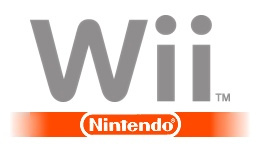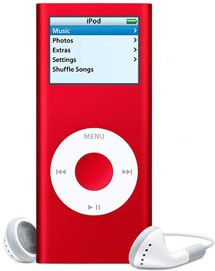
Nintendo Wii: All beauty, no brains?
 A recent look at the released architecture of the upcoming Nintendo Wii it appears that chip maker IBM may have only given Nintendo an overclocked Gamecube.
A recent look at the released architecture of the upcoming Nintendo Wii it appears that chip maker IBM may have only given Nintendo an overclocked Gamecube.
The CPU from IBM that is going into the Nintendo Wii, dubbed Broadway or IBM 750CL appears to be nothing more than hopped up version of the Gekko platform that powered the Gamecube, the IBM 750 or G3. The only immediate differences appear to be that the chip is set to run at 900Mhz. All the usual suspects of chip features return as they were in the Gamecube's Gekko system. Paired floating-point pipelines for SIMD single-precision operation, cache locking so regular data does not get overridden by graphical data, floating-point-to-integer conversion in the load-store pipeline, two-wide dispatch, etc.
What this will mean for gamers can really only be argued by what the gamer wants out of Nintendo. I personally am still excited about the Wii and will probably own one to compliment my gaming collection. Nintendo in their press announcement never stated that they wanted to be the most graphically advanced like the other big two, but just deliver good honest gameplay. I think I can live with that.

 It seems more and more videos downloaded from the internet are coming with their very own surprise. The days when kids would excitedly dive their hands in a cereal box looking for a toy could be relived in online media. Adware and Spyware companies have devised ways to require online video to require a codec to play that just so happens to contain their malicious software inside. If you act now, they'll even throw in your very own keylogger!
It seems more and more videos downloaded from the internet are coming with their very own surprise. The days when kids would excitedly dive their hands in a cereal box looking for a toy could be relived in online media. Adware and Spyware companies have devised ways to require online video to require a codec to play that just so happens to contain their malicious software inside. If you act now, they'll even throw in your very own keylogger!
 The Internet community phenomenon known as MySpace has released a statement saying they are integrating a new software that will scan old and new MySpace pages for integrated files that may be copyright protected.
The Internet community phenomenon known as MySpace has released a statement saying they are integrating a new software that will scan old and new MySpace pages for integrated files that may be copyright protected.
 A non-profit organization has spawned from the darkness to rise up and give a voice to an often overlooked demographic. The gaming industry has been the brunt of many uninformed attacks by aging politicians who cant appreciate the artistic benefits of current video games. With most recent attacks on games like Rockstar's Bully and the infamous "Hot Coffee" incident in Grand Theft Auto, the Entertainment Consumers Association (ECA) has come forth to help the industry shine in the face of policital smite.
A non-profit organization has spawned from the darkness to rise up and give a voice to an often overlooked demographic. The gaming industry has been the brunt of many uninformed attacks by aging politicians who cant appreciate the artistic benefits of current video games. With most recent attacks on games like Rockstar's Bully and the infamous "Hot Coffee" incident in Grand Theft Auto, the Entertainment Consumers Association (ECA) has come forth to help the industry shine in the face of policital smite.
 Apple released today an aluminum red iPod Nano in cooperation with Irish megalomaniac Bono in which every sale will see $10 go towards helping find a cure for AIDS, Tuberculosis and Malaria.
Apple released today an aluminum red iPod Nano in cooperation with Irish megalomaniac Bono in which every sale will see $10 go towards helping find a cure for AIDS, Tuberculosis and Malaria.
 Redmond is ablaze with new ideas of how to, once again try and break into the US television market and share some of the wealth that cable and satellite companies garner. After such failed attempts as WebTV, Microsoft has tried repeatedly to launch a successful and profitable television service over the Internet.
Redmond is ablaze with new ideas of how to, once again try and break into the US television market and share some of the wealth that cable and satellite companies garner. After such failed attempts as WebTV, Microsoft has tried repeatedly to launch a successful and profitable television service over the Internet.
 UK film minister, Shaun Woodward was recently quoted in saying that he believes the best way to fight Internet film piracy is to make movies available in an on-demand format as soon as the movies are released.
UK film minister, Shaun Woodward was recently quoted in saying that he believes the best way to fight Internet film piracy is to make movies available in an on-demand format as soon as the movies are released.
 A recent article snatched from Microsoft employee David Caulton has given some insight to the new Wi-Fi enabled Zune player. Poised to be the one true competition for the iPod juggernaught, the Zune appears not to be living up to the feature hype.
A recent article snatched from Microsoft employee David Caulton has given some insight to the new Wi-Fi enabled Zune player. Poised to be the one true competition for the iPod juggernaught, the Zune appears not to be living up to the feature hype.
 Long time photography pioneer Canon met with electronics giant Toshiba in Chiba, Japan to announce that they will partner in producing a new type of flat panel television.
Long time photography pioneer Canon met with electronics giant Toshiba in Chiba, Japan to announce that they will partner in producing a new type of flat panel television.







